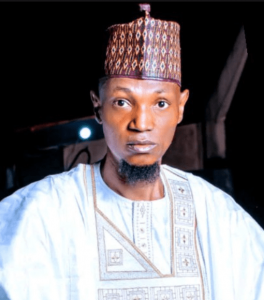Exclusive: Leaked documents reveal death threats, roadblocks in Haiti assassination investigation

“Hey clerk, get ready for a bullet in your head, they gave you an order and you keep on doing shit,” read the July 16 text, one of several death threats sent to court clerks assisting Haiti’s investigation into the murder of former President Jovenel Moise, according to official complaints filed with Haitian police and seen by CNN. They’re part of a cache of Internal Justice Ministry documents obtained exclusively by CNN, which reveal previously unheard testimonies from key suspects, mysterious attempts to influence the probe, and the acute danger felt by judicial investigators as they attempt to uncover who killed the president on July 7. Death threats are not the only thing making Haitian investigators’ jobs more difficult. Multiple sources have also described to CNN a series of unusual roadblocks thrown at investigators, including difficulty in accessing crime scenes, witnesses and evidence. The result is an investigation that has repeatedly veered from established protocol, according to both insiders and independent legal experts. The question is why?Death threats and strange requestsMultiple Haitian officials have received death threats since their investigation began two weeks ago, documents show.Carl Henry Destin, the justice of the peace who officially documented Moise’s ravaged home and body hours after his shooting, went into hiding just two days later. “As I am talking to you now, I am not home. I have to go into hiding somewhere faraway to talk with you,” Destin also said he and othersHaitian legal expert and former judge Jean Senat Fleury tells CNN he fears many more legal norms have been broken in the course of the current investigation. Haiti’s constitution forbids interrogating witnesses without an attorney or witness of their choice, and requires that an independent judge rule on the legality of any suspect’s detention for more than 48 hours. More than two weeks after the assassination, there has been no public announcement of formal charges against any suspects in the case, and police have repeatedly declined to comment on whether the detained have access to legal representation.It is possible that simple neglect or disorganization in Haiti’s underfunded justice system, which still largely relies on a paper filing system, have been the real hindrances to the investigation so far. “To have an investigation where things seem like they should be obvious, like the contents of the surveillance footage … is that because of the systemic dysfunction or is that because someone didn’t want this thing to be publicly known? The system makes it very difficult for you to know which it is,” said Concannon. But uncertainty around the investigation is feeding fears of dark and mysterious forces in a city where kidnapping and gang violence already threaten daily life. If the masterminds behind the murder of the most powerful man in the country cannot be brought to justice, can anyone? “The birds of prey are still running the streets, their bloody claws still looking for prey,” First Lady Martine Moise told mourners at her husband’s funeral on Friday, in apparent reference to her husband’s killers. Moise herself only recently returned after receiving treatment in Miami for injuries sustained in the attack — accompanied by US security guards, CNN sources say.”They don’t even hide,” she continued, facing Haiti’s assembled political elite. “They are here, they just watch us, listen to us, hoping to scare us.”Reporting contributed by CNN’s Evan Perez in Washington.




